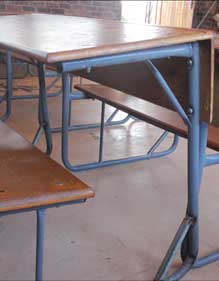
With much corruption at schools related to the buying of goods and services – commonly known as procurement – the government expends a lot of effort trying to manage the process. This has resulted in provincial education departments regularly issuing regulations to manage procurement by schools.
How it’s done at no-fees schools
While the regulations differ from province to province, the general procedure for the management of procurement by no-fee schools is as follows: for purchases over a given amount (which is determined by the province), the no-fees school must provide the department with three separate quotations, generally from a list of registered suppliers. The provincial education department then approves the most suitable quotation and either pays the chosen supplier directly, or transfers funds into the school’s account to pay the supplier.
For example, in KwaZulu-Natal, procurement of goods below R2 000 (including VAT) can be done by inviting competitive quotes. This amount may be paid out of petty cash. However, goods between R2 000 and R10 000 (including VAT), require three quotations from the province’s list of registered database suppliers.
To purchase goods or services between R10 000 and R500 000, officials must call for written quotations from as many suppliers as possible registered on the official database. Schools also have to advertise the tender in the government tender bulletin.
Procurement at fee-paying schools
Section 21 schools, which are responsible for managing their own finances through the school governing body (SGB), generally use a similar process. Section 21 schools draw up budgets to manage and oversee the procurement of goods and services.
They are also expected to get at least three quotes when purchasing anything. In the case of purchases which exceed that which can be paid by petty cash, Section 21 schools must either publish a tender or get three quotes before making a decision from whom to buy.
Any asset procured using a school’s money should be listed in the name of the school and should be noted in a register of assets. The procurement of all assets must be accounted for in the audited statements submitted to the parents and education department annually.
Keeping the process clean
A call for a tender (which is defined as an offer to do work or supply goods at a fixed price) has to be as broad as possible – there can be no limitations on a certain make or manufacturer or price – to encourage a wide range of quotes.
Many provinces also prohibit the breaking up of a tender to discourage corruption.
Tenders have to be submitted in writing and must include all the details of the prospective tenderer including the legal or full name of the applicant, and contact details, postal address and email address (if available). Details of tenderers must remain confidential for the period of the tender to prevent a rival trying to undercut or copy them.
Once a tender has been approved and accepted in writing, the terms are binding. This means that the winning bidder has to provide the goods and services in the manner agreed and at the price it quoted – it cannot suddenly inflate the price and demand more money. The school has to pay according to the price quoted, and cannot pay more without justification or approval from the SGB.
To prevent corruption, a member of the governing body – including the principal, teachers, chairman and treasurer – must withdraw if there is any personal interest in a matter being discussed and considered by the SGB, including the awarding of a tender, according to Section 16 of the South African Schools Act.
Bribery and corruption
Accepting money or a gift in return for being awarded a tender or landing a contract is considered bribery and corruption in terms of the Prevention and Combating of Corrupt Activities Act of 2004.
So a member of the governing body or teaching staff will be guilty of bribery or corruption if he or she directly accepts – or offers to accept – money, goods or services from another person in exchange for ensuring that person gets a tender or is allowed to supply goods or services to a school. A member of the SGB will also be indirectly guilty of bribery or corruption if a tenderer or supplier gives, or offers to give, money or gifts or services to a relative in exchange for awarding a tender.
SGB members, in fact, are not allowed to receive any compensation for serving on the governing body in terms of Section 27 of the Schools Act. The only remuneration they may expect is to be reimbursed for necessary expenses they have incurred in the performance of their duties.

